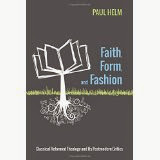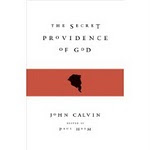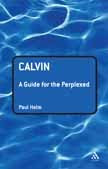A feature of the Christian life is that the virtues of it are the result of the regeneration of God the Holy Spirit, and that they are revealed in bunches. Both are Peter in his first and second epistle, and Paul in several ways in his varied letters, takes this view
So Peter states
‘…..make every effort to supplement your faith with virtue , and virtue with knowledge , and knowledge with self-control, and self-control with steadfastness, and steadfastness with godliness, and godliness with brotherly affection with love. For if these qualities are yours and are increasing, they keep you from being ineffective or unfruitful in the knowledge of our Lord Jesus Christ. For whoever lacks these qualities is so short-sighted that he is blind, having forgotten that he was cleansed from his former sins. Therefore brothers, be all the more diligent to make your calling and election sure, for if you practice these qualities you will never fall. For in this way there will be richly provided for you an entrance into the eternal kingdom of our Lord and Saviour Jesus Christ (2 Peter 1.5-11)
Note that there is no mention over different classes of disciple. A virtue is a power of the soul (Note that for Peter, power, ‘divine power’) is the overall (v.2) source of progress in the Christian life. Various matters can go together. Peter mentions as a ‘bundle’ use of a string of powers, and sometimes some causes other virtues. Bt as we shall see, vices come in groups too.
So in Romans, for example, Here is one case, in 12. 9.
‘Let love be genuine. Abhor what is evil, hold fast to what is good. Love one another with brotherly affection. Outdo one another in showing honour, Do not be slothful in zeal, be fervent in spirit, serve the Lord. Rejoice in hope, be patient in tribulation, be constant in prayer.(12. 9-12) ‘May the God of hope fill you with all joy and peace in believing, so that by the power of the Holy Spirit you may abound in hope.’
And in the Ephesians, ‘put off your old self which belongs to your former manner of life and is corrupt through deceitful desires , and to be renewed in the spirit of your minds, and to put on the new self, created after the likeness of God in true righteousness and holiness’.( 4.22 – 44). Contrasting with ‘all bitterness and wrath and anger and clamour and slander be put away from you, along with all malice. Be kind to one another, tender-hearted, forgiving one another’, continued in chapter 5.
Christian virtues , sometimes they are explicitly the some model in Christ’s work. In these affections are produced. Affections from 12.10. Phil 2.1 2Peter 1.7. 1.5, various clustering as in Rom 12.9, 13.3, love 1 Cor 13, Eph 4.22, Philippians 2.3, 4,8.
The contrast between virtue and vices is signalled by The NT difference between the affection and emotion in such passages, as shown by Edward Reynolds, an influential member of the Westminster assembly, who in the 1660’s at the Restoration of the King Charles II conformed with the Church of England and became Bishop of Norwich. In his book on the emotions, A Treatise on the Passions and Faculties of the Soul.
As we shall see, it seems to have been Reynolds to make a distinction between affection, for the sophisticated, and the passion, for the simple, as we shall see,
The way of the treating of the passions and affections Reynolds says,
For the corrupt effects of passion in general, because there are many more, because there may be a multiplicity as well of evil as of error, when there is but a unity of goodness and of truth, one amongst another; or in references to understanding, will, or body. The effects of them amongst themselves is in their mutual generating and nourishing of each other, as fear is wrought by love; and anger , by grief. p, 99 Reynolds (6.48’). He comes close to an ideological account of emotion .
He goes on
And it is true as well in man’s little commonwealth, as in greater states, that there are no more pestilent and pernicious disturbers of the public good, than those who are best qualified for service and employment, - if once they grow turbulent and mutinous, neglecting the common end, for their own private respects, and desirous to raised themselves upon public ruins. And, indeed, it is universally true, things most useful and excellent in their regularity, are most useful and excellent in their regularity, are most dangerous in their abuse. (Treatise on the Passions and Faculties of the Soul. 6.38)
For the apostles Peter and Paul, however, the Gospel and its virtues is not a ideology, propounding gentleness of character, contrasted with the ‘roughness’ of the character of the crowd. Not class struggle. (see the references to a quiet life I Tim. 2.2, I Peter 3.4, I Thess.4.11) These are the fruit of the Spirit and of Christ’s own example.
Owen provides something more acceptable:
The mortification of our affections towards these things, our love, desire and delight, will produce a moderation of passions about them, as fear, anger, sorrow and the like ; such will men be stirred up unto these changes, losses, crosses, which these things are subject unto….. When the mind is weaned from the world, and the things of it, it will be sedate, quiet, composed, not easily moved with the occurrences and occasions of life: it is dead unto them, and in a great measure unconcerned in them,. This is that “moderation” of mind wherein the apostle would have us excel. [1]
The Apothat Apostolic teaching about virtue and vice is about two cultures, the one generated by the Spirit, and the other the fruit of the flesh. This is a spiritual difference, not social or political, but religious. With Paul between………and Peter in I Peter 2.1, 12, and 4.3-4 , and 2 Peter 1.5 1.7, 2.14. And Paul, in Romans 12.10, and Philippians 2.3. and its vicious opposites, Ephesians 5. 3—11and Philippians 3 17-9, and Colossians chapter 3.
The following expressions are typical. Ephesians, 4.22…..’put off your own self which belongs to your former manner of life and is corrupt through deceitful desires’, and chapter 5. And ‘put on then, as God’s chosen ones, holy and beloved, compassion, kindness, humility, and much of Colossians chapter 3, ‘meekness, and patience, bearing one another.’ And other similar Petrine passages, and in I Peter 4.7 and earlier I Peter. 2.11f.
..
[1] These passages are in Chapter 4 ‘The Powers and Faculties of the Soul’ by Paul Helm, Human Nature from Calvin to Edwards, (Reformed Heritage Books, 2018), particular pages 98-100.









